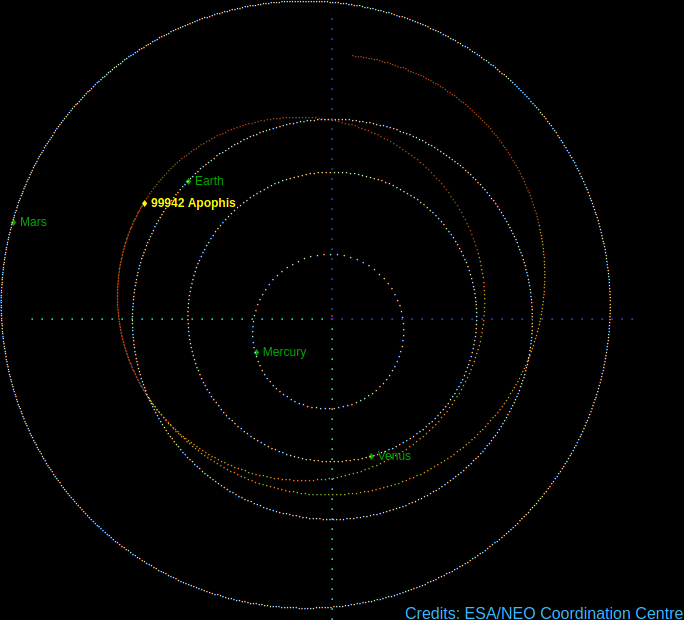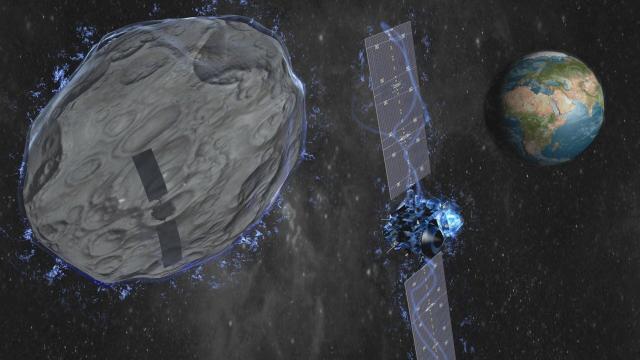Asteroid Apophis is scheduled for a brief rendezvous with Earth and NASA is hoping to get a good view of the close encounter in order to prepare for potentially hazardous visits by other rocky bodies.
During the Planetary Defence Conference in Vienna, Austria, last week, Bhavya Lal, NASA’s associate administrator for technology, policy and strategy, revealed the space agency’s concept for using a swarm of spacecraft to capture images and data of Apophis before its close approach with Earth, SpacePolicyOnline reported.

The NASA official suggested that different space agencies work together to send an international fleet of spacecraft to the asteroid ahead of its Earth flyby on April 13, 2029. “Nature has provided us with such a prime opportunity to demonstrate our space mission prowess,” Lal is quoted as saying. “In this case to perform rapid reconnaissance of an approaching object that might be an impact threat to learn all we can about it and inform any action we might need to take to mitigate potential disaster.”
Apophis, aptly named after the ancient Egyptian demon of chaos, caused a bit of panic when it was first discovered, as it was deemed to be on a collision course with Earth. Further analysis showed that the approximately 350.52 m-wide (350 meters) asteroid poses no threat to our planet in the coming decades, although a slight chance of impact still remains in 2068, according to the European Space Agency.

The rocky body is on its way to Earth for a very close approach in 2029, coming within 20,000 miles (32,000 kilometers) of Earth’s surface. That’s close enough for the asteroid to be visible with the naked eye, and ten times closer than the Moon to Earth. And in fact, Apophis will come closer to Earth than some satellites in geostationary orbit.
In order to take advantage of the asteroid’s close proximity, NASA will redirect one of its spacecraft to study the asteroid up-close. OSIRIS-REx is on its way to Earth to drop off a rocky sample from another asteroid known as Bennu. After it completes its drop off in September 2023, the mission will be renamed OSIRIS-APophis EXplorer, or OSIRIS-APEX, and redirected to meet Apophis during its Earth flyby.
The international spacecraft fleet idea, however, is still a mission concept at best and hasn’t received any formal funding yet. Apophis’s flyby does present a rare opportunity to get a closer look at a near-Earth asteroid, one which could help beef up our planetary defence strategies. And, as SpacePolicyOnline reports, planetary defence is among the U.S. administration’s priorities for space, so there’s a good chance that the asteroid-hunting swarm might get the funding it needs.
Twitter and bookmark Gizmodo’s dedicated Spaceflight page.
